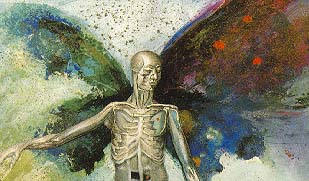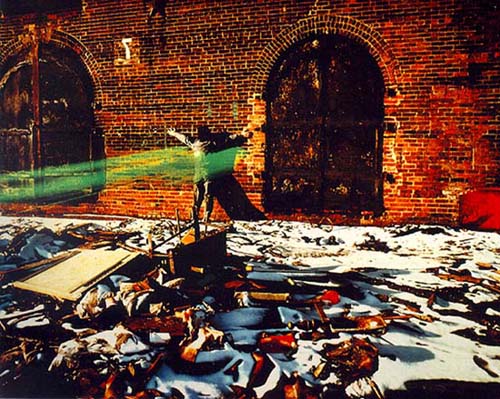Disease, Health and Character
Biological Rhythms of Literature
The Body In Poetry
Student Julia Melancon struggles with the question, "Must the body be transcended, rejected, or ignored to free the spirit/creativity?


Do you define language as a way to experience life, to express yourself, to communicate, to clarify and/or to explain? After exploring other forms of language such as non-verbal body language,
the language of systems inside the body and the language of the environment, what is your new perspective on verbal language?
Why did we choose to construct our thoughts with a noun, (a doer), a verb (an action), an object (a victim) and adjectives and adverbs to describe the quality of this event?
Does our sentence structure reflect a sexist, hierarchical attitude about life? Is poetry the only kind of language that mimics the subtle, osmotic nature of other forms of communication?
What is the language you would write if you wanted to really express yourself?
Click on the following categories to explore the relationships between literature and the body:
Describing the Body
Disease, Health and Character
Biological Rhythms of Literature
The Body In Poetry
Student Julia Melancon struggles with the question, "Must the body be transcended, rejected, or
ignored to free the spirit/creativity? 